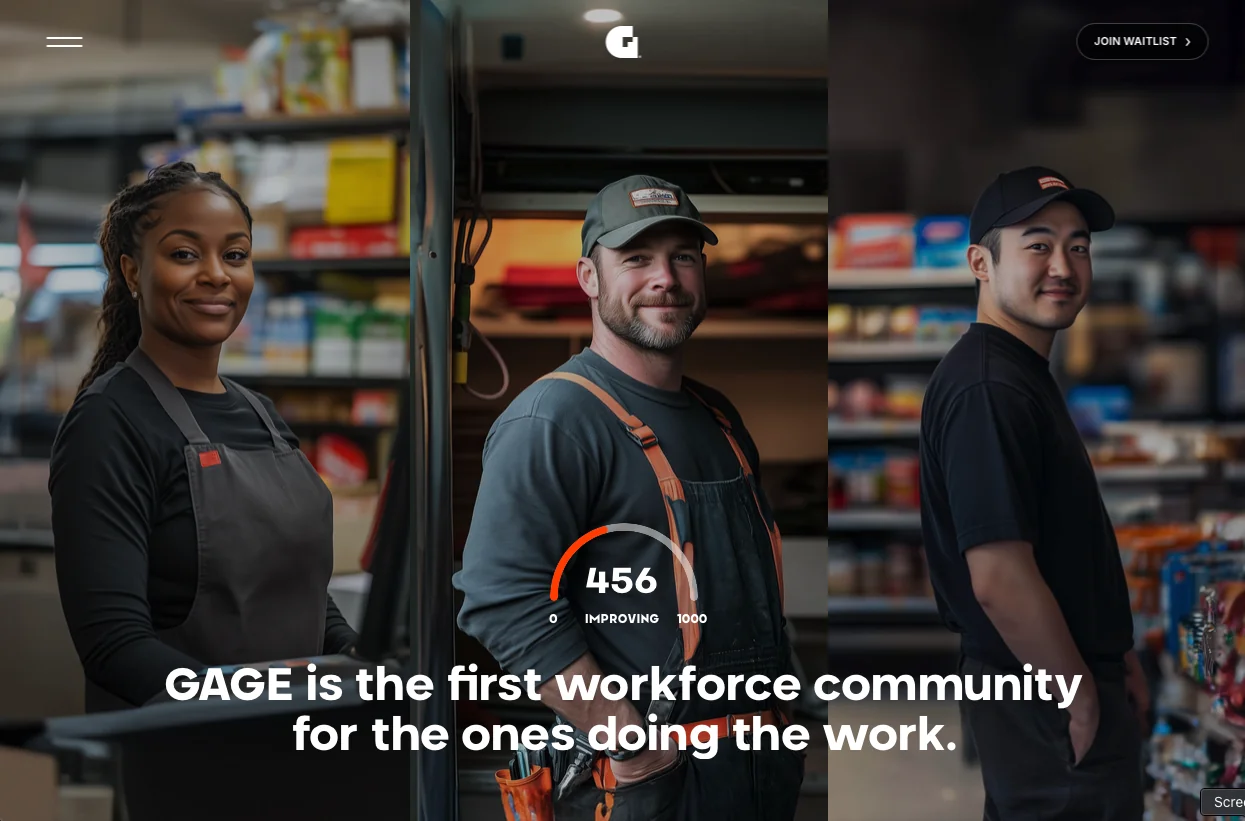Imagine applying for a job, and instead of the usual interview questions, the hiring manager just glances at your score, your workplace score. Not your resume, not your references. Just a number. And that number could make or break your future.
That’s the reality being ushered in by a new app called Gage.
A New Kind of Dystopia , Now Hiring
On the surface, Gage looks like just another workplace management tool. It helps bosses assign tasks, send out schedules, and recognize achievements. Harmless, right? But dig a little deeper, and you’ll find something far more sinister: an employment score, a transferable, permanent rating that follows you from job to job like a workplace credit score.
Sound familiar? That’s because it’s essentially a social credit system for hourly workers. You might’ve seen something similar in Black Mirror, where your rating determines everything from your job to your ability to rent a car. Well, it’s no longer fiction.
Gage pitches itself as a tool to “transform workplace culture.” But let’s be honest: if your boss doesn’t like you, that score could plummet, and your chances of being hired elsewhere go down with it.
High Score? You Get the Job. Low Score? Good Luck.
Consider this: you’re 18, applying to your first fast food job. They ask if you’ve downloaded Gage. It’s “just how they communicate,” they say. You agree. Now your entire work history is quantifiable. Every shift, every interaction, rated.
You can’t make your shift on a Sunday because you’re taking care of a family member? Minus points. You refuse overtime because it was last, minute and not on your schedule? More minuses. Soon, your score tanks, 405 out of 1,000. Suddenly, you’re not getting call, backs.
One Chick, fil, A manager already praised Gage, saying they give preferred hours and positions to those with higher scores. That means your work schedule, your income, is determined by an algorithm fueled by subjective impressions and boss favoritism.
And here’s the kicker: what if your boss just doesn’t like you? Maybe you listen to the wrong music, or ask too many questions. There’s nothing to stop them from downvoting you into career oblivion.
Gaming the System? Get in Line.
You can see where this is going.
People will start gaming the system. “Hey bro, I’ll give you $100, pretend I work at your business and give me a good score.” Or worse, fake companies might spring up just to inflate scores. Meanwhile, honest workers who had one bad job experience get locked out of opportunities.
Once you’re in, you’re in. It’s not just about performance anymore, it’s about perception. And when that perception is managed by an app with minimal oversight, we’re in dangerous territory.
What Happens When the Score Defines You?
This isn’t some fringe idea. Gage has received seed funding, and it’s already being used by real companies, including restaurants and retail chains. The language on their site is dressed up in corporate jargon: “streamline feedback,” “enhance communication,” “foster positive culture.”
But when you strip away the buzzwords, it’s simple: your job performance becomes a number. A number employers will judge you before you’ve even said hello.
Don’t want to download the app? That’s cute. You may not have a choice. Companies are already requiring it as part of the hiring process. It’s how they send schedules, how they communicate, it’s their “system.” You either opt in or opt out of employment entirely.
A Future You Can’t Opt Out Of
There’s a reason this feels like a slow descent into sci, fi horror: it’s eerily familiar. We’ve seen this story told in fiction. We laughed nervously at the absurdity of a world where your smile at a barista impacts your ability to get a mortgage. But now, a low score from a fast food manager could mean you don’t get a second interview at all.
It’s coming. Not because the technology is good or fair, but because it’s profitable. Businesses lose money hiring bad employees. Gage promises to weed out the “undesirables” with data, regardless of how flawed or biased that data might be.
And if we let it happen, we’ll be walking willingly into a corporate, controlled caste system built on reviews, ratings, and reputations we can’t fully control.
So ask yourself: When your worth is boiled down to a number, who gets to decide what you’re worth?


